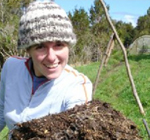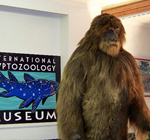
go organic! go wwoof'ing!
Sick of tour holidays that make you wake up at ungodly hours and rush you through tourist sites when you want to take a longer, closer look? Have too many handbags ...
More
text & images . Sarah Brown.
Copan Ruinas is in Central America in the western part of Honduras, right next to Guatemala. Walking into the dusty red haze that hangs over the town, I notice the calm and accommodating feeling first. As I get closer to the Central Plaza the hum of activity begins - students practice their newly acquired language skills, cafes entertain patrons with their local coffee and Hondurans go on with their everyday business. In its own right it is worth a visit, but add to it an archaeological site of the Maya civilization, 2 Spanish schools and a number of coffee plantations and you have a massive tourist destination. Thankfully without the horrors of it being overrun, pretentious and tired.
I went to Honduras for 1 month and 2 reasons - to increase my Spanish level to conversational and to get a dive license. I definitely failed in the latter due to sickness but if a Spanish speaker takes pity on me and speaks extremely slowly and clearly in present tense only; hablo espanol ….
My school of choice was Guacamaya. It is situated in the downstairs part of the owners 2 story home. Here I had lessons with Nelly every week morning from 8 a.m - 12 p.m. All lessons are one-on-one to ensure individual’s needs are being met. Nelly drilled me in military fashion with my verb tense endings, tested my vocabulary with picture cards and encouraged me with the patience of the Dalai Lama as I bastardized her native language.
In the afternoons, I return to my host family (also supplied by Guacamaya) for a meal of homemade tortillas, smooth buttery avocado, refried beans and creamy cheese. It took me a few days to realise the constant rhythmic beating before meal times was my host mother pounding the dough to make the flat bread like tortillas, a staple throughout Central America.
I headed out sightseeing every afternoon with a stomach full of goodness. All visitors to Copan must take in the UNESCO protected Mayan Ruins; this area was the capital for the region from the 5th-9th centuries AD. The entire ruin site has more than 4,500 structures, over a 20-square-kilometre area, with the main park housing the principal group.
I could have walked around with a guide learning about each area in turn, but I am a select and lazy student. So I walked around alone and looked and imagined what could have been.
The Great Plaza famous for its stelae (upright stone slabs, often gravestones), and altars, also has the ball court, my favourite area. I am certain the games played there were aggressive and highly competitive. “Go hard or go home,” would definitely have been the mantra of those athletes.
The Hieroglyphic stairway has 63 steps and contains the longest known text left by the Mayans. The steps tell the story of the royal house of Copan. The steps through the years have been replaced in the wrong slots, so the text is more like a puzzle. 
The Acropolis has Temple 16, which is built, on top of another temple. It is 100 feet high and surprisingly, you can climb to the top to get a view of the whole area. Under Temple 16 are a series of tunnels 4 kilometres long; two are open to the public. The tunnels are roomy and there are aqueducts, baths and tombs under the ground.
My routine after sightseeing each day was to sit in one of the many cafes, drink more local coffee, eat more cake, study a little Spanish and stare out into the street watching everyday people living their everyday lives.

go organic! go wwoof'ing!
Sick of tour holidays that make you wake up at ungodly hours and rush you through tourist sites when you want to take a longer, closer look? Have too many handbags ...
More

museums of the weird and wonderful
Spending an afternoon at the museum is a delightful way to soak up history, culture and art, that is, if you happen to be at the Louvres, the British Museum or the ...
More